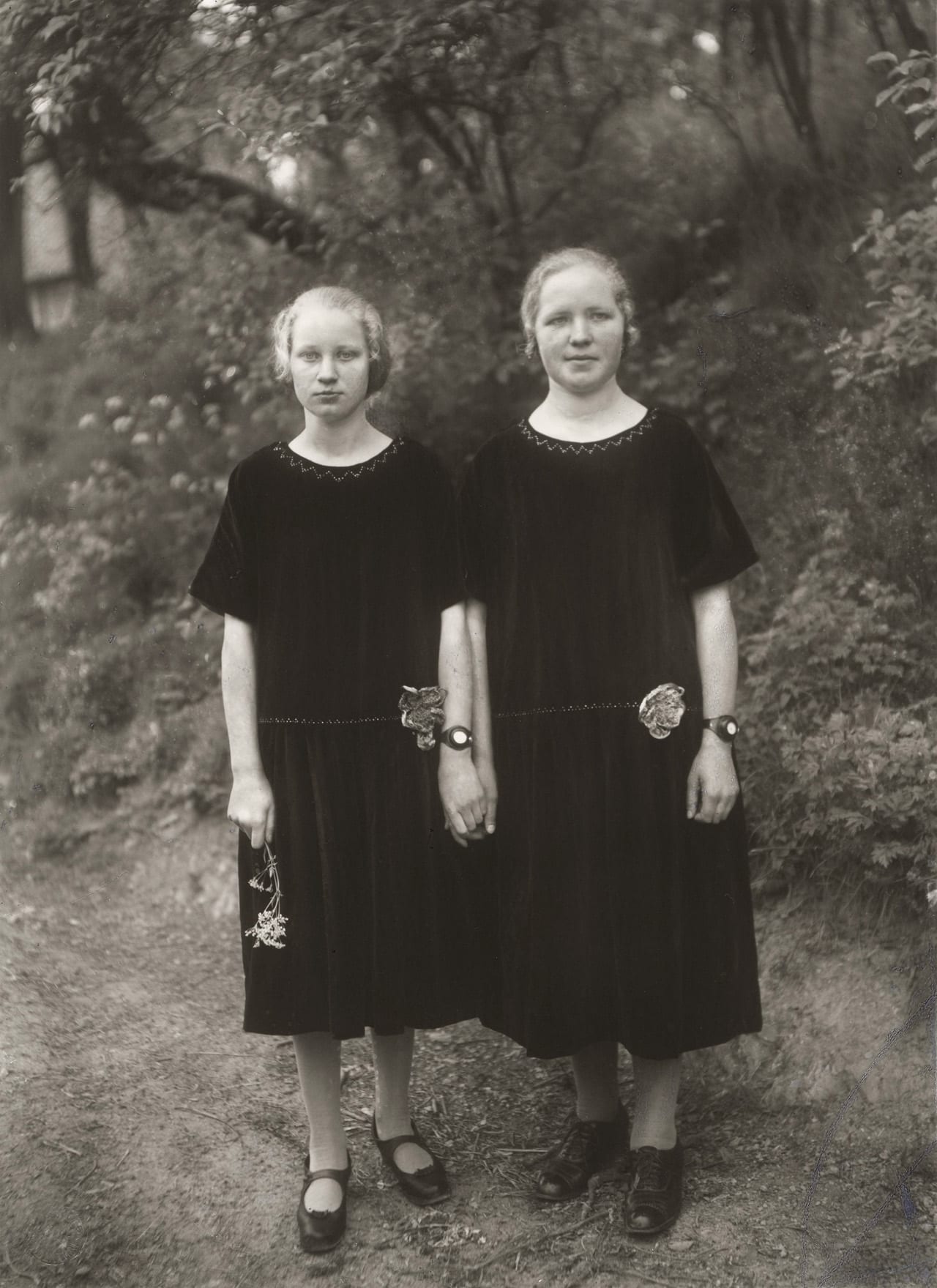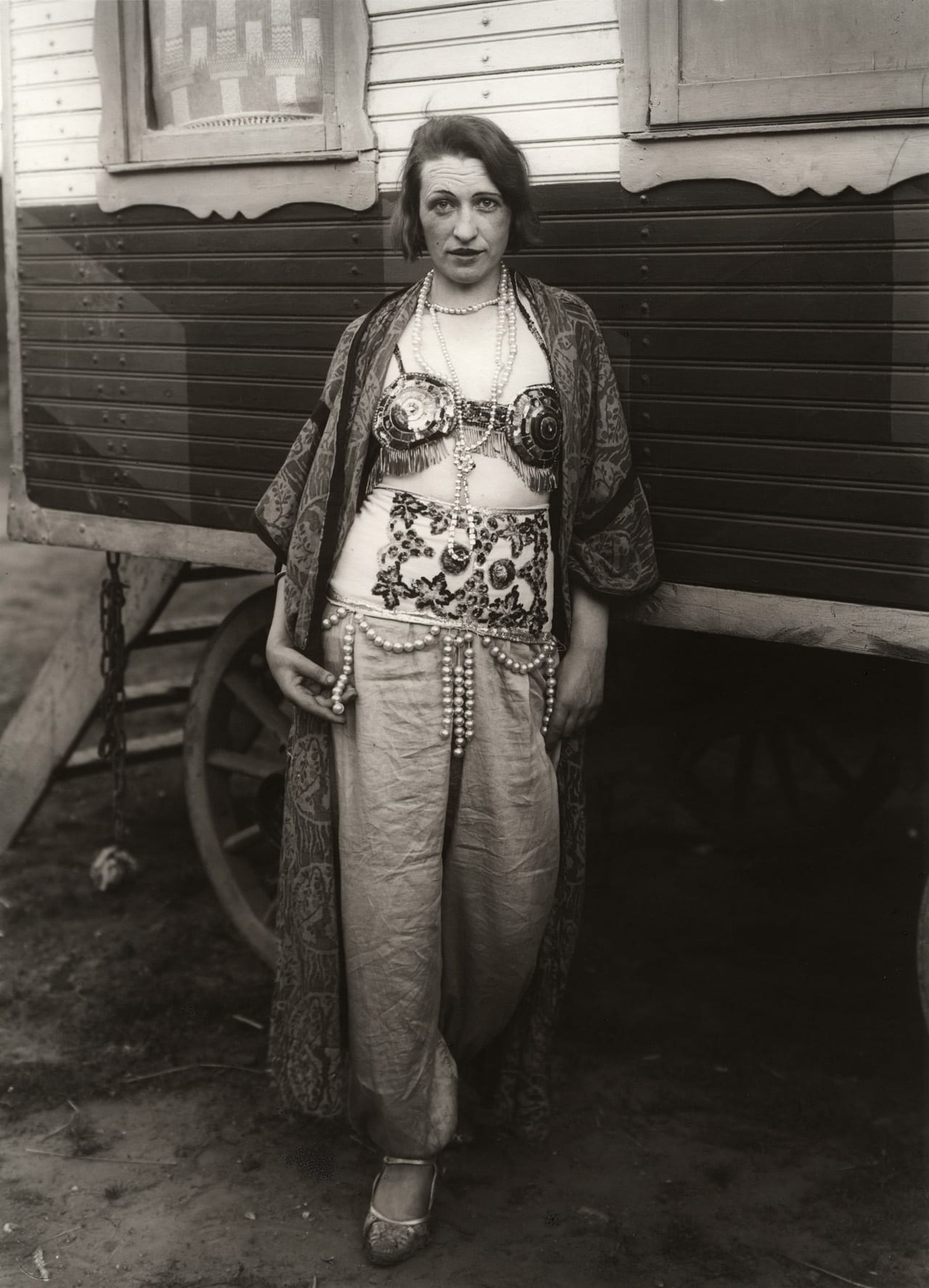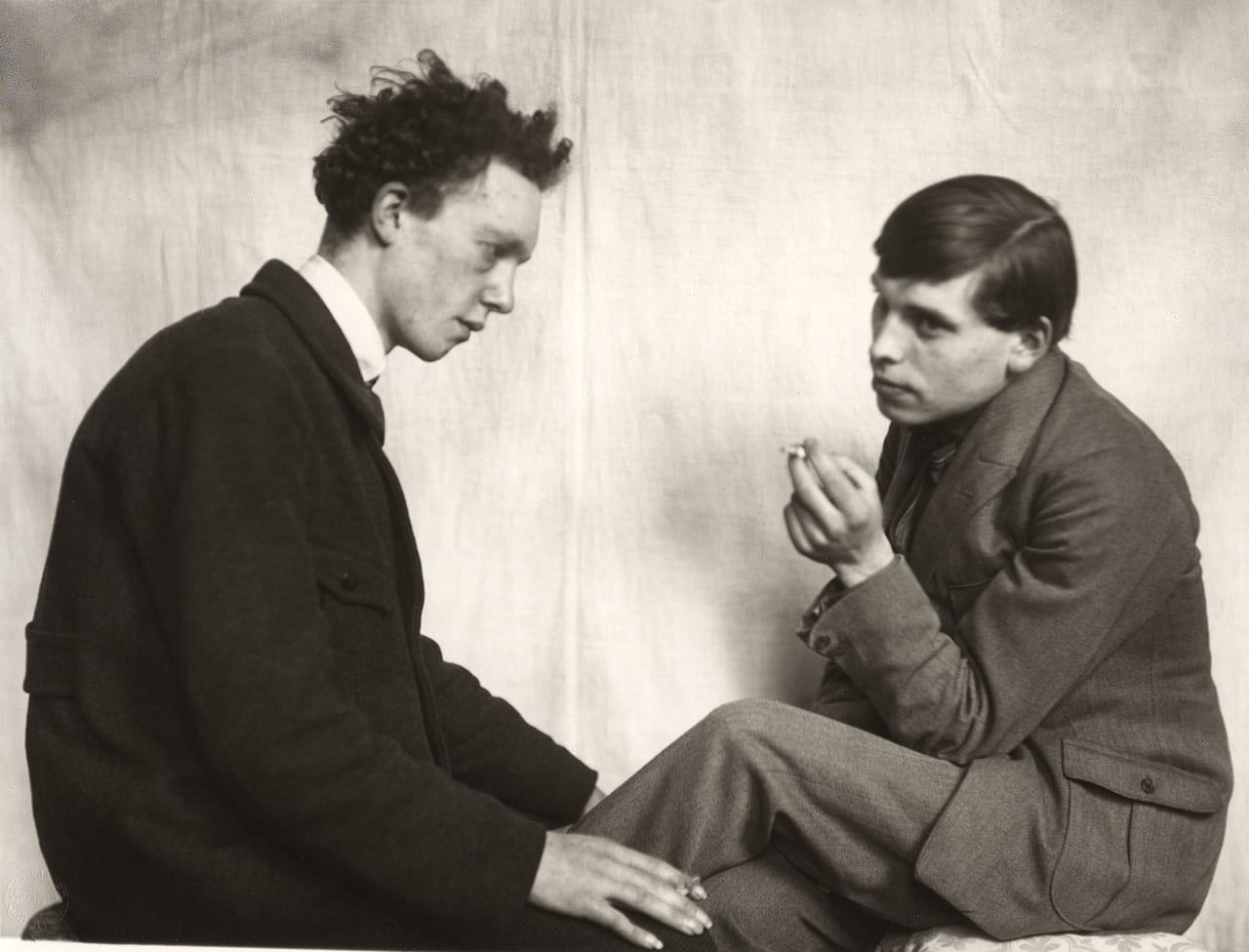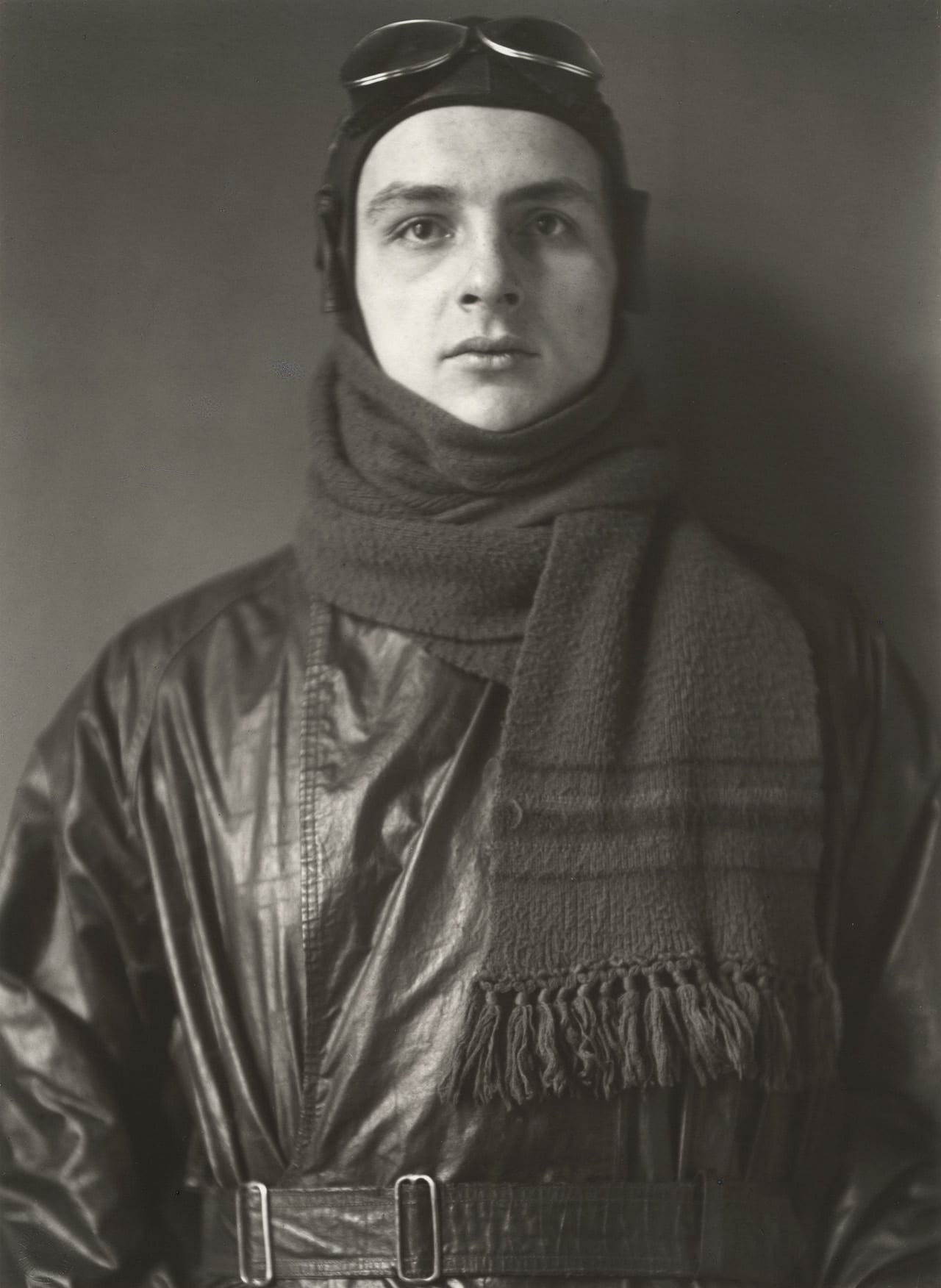Born in 1876 in the German mining town of Herdorf, August Sander discovered photography while working at a local slagheap. Serendipitously meeting a landscape photographer working there for a mining company, he went on to assist the image-maker, and by 1909 had opened his own studio in Cologne.
Around this time he also started taking portraits of his fellow-Germans, deliberately eschewing the then-prevalent pictorialist approach in favour of recording as much detail as possible. “Nothing seemed to me more appropriate than to project an image of our time with absolute fidelity to nature by means of photography,” he stated. “Let me speak the truth in all honesty about our age and the people of our age.”
This work evolved into his decades-long project People of the 20th Century, now considered a seminal photographic work. Falling into seven distinct groups, People of the 20th Century set out to show ‘The Farmer’, ‘The Skilled Tradesman’, ‘The Woman’, ‘Classes and Professions’, ‘The Artists’, ‘The City’ and ‘The Last People’, and in doing so revealed Germany’s ethnic and class diversity.
In 1927, Sander showed about 100 of his photographs at the Kölnischer Kunstverein in an exhibition titled People of the 20th Century: A Cultural Work in Photographic Pictures; in 1929 he published his first book, Face of Our Time, presenting 60 portraits. As the Nazi regime took control his work and personal life became constrained, however, and in 1936 Face of our Time was seized and the photographic plates destroyed.
In 1942 he left Cologne and moved to the countryside, hoping to save his negatives; in 1944 his studio was destroyed in a bombing raid. 30,000 of his approximately 40,000 negatives survived the war, but they were then destroyed in an accidental fire in Cologne in 1946. Sander did very little photographic work after World War Two, and died in Cologne in 1964.

This summer, Hauser & Wirth London is showing a large exhibition of Sander’s work called Men Without Masks, which focuses on images made from 1910 – 1931. Alongside images from People of the 20th Century, the exhibition features 81 of the 110 original oversized prints produced by Sander’s son Günther for the book Men without Masks published in 1971, and for the accompanying exhibition in Mannheim in 1973.
“These portraits paint a picture of Germany’s complex socio-economic landscape in the years leading up to and through the Weimar Republic, and laid the framework for People of the 20th Century,” says curator Olivier Renaud-Clément.
“Working in a rigorous fashion, Sander pioneered a precise, unembellished photographic aesthetic that was formative to the establishment of the medium’s independence from painting and presaged conceptual art,” he continues. “The artist considered empathy toward his sitters to be critical to his work, and strove not to impose a portrayal upon an unwilling subject, but to enable self-portraits.”
Or, as Sander once remarked, “I never make a person look bad. They do that themselves. The portrait is your mirror. It’s you.”
“This is an exhibition of works that should help viewers to ponder and reflect upon our time, past, present and future, and the role each human plays,” says Renaud-Clément. “It should expand beyond the medium itself and enter the pantheon of the greatest artist of all time.”
August Sander. Men Without Masks is on show from 18 May – 28 July 2018 at Hauser & Wirth London hauserwirth.com. The exhibition is a Photo London satellite event https://photolondon.org/public-programme/satellite-events/
Another exhibition of Sander’s work is on show in Paris at the Mémorial de la Shoah until 15 November, titled August Sander – Persécutés/persécuteurs, des Hommes du XXe siecle https://expo-photo-sander.memorialdelashoah.org/



